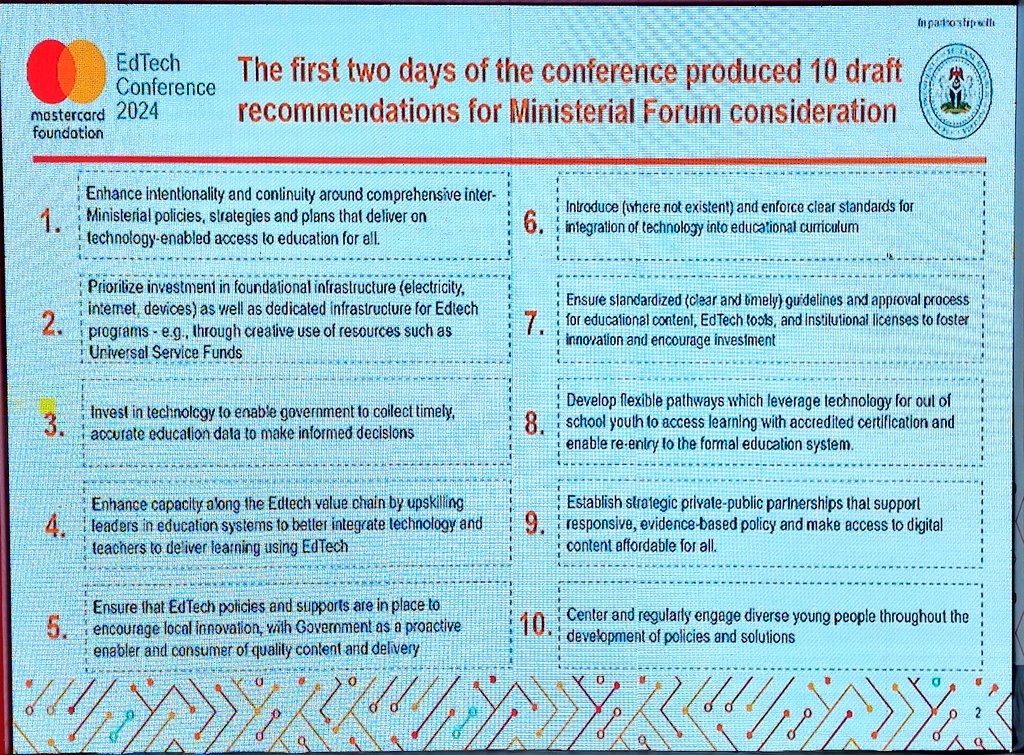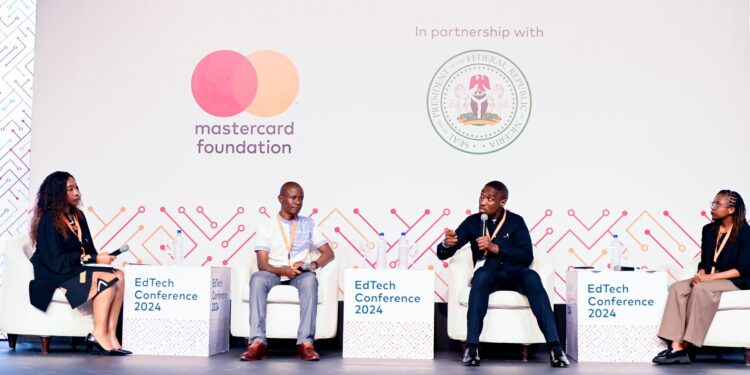By John Ikani
The Mastercard Foundation EdTech Conference 2024, held in Abuja, Nigeria, concluded today after three days of thought-provoking discussions and groundbreaking announcements.
The conference, themed “EdTech for Resilience and Inclusive Learning in Africa,” brought together hundreds of participants from across the continent, including policymakers, educators, young innovators, and tech leaders, all united in a common goal: revolutionizing education in Africa through technology.
Building on the excitement of the opening remarks, which highlighted the challenges facing traditional education systems and the immense potential of EdTech, the conference delved into critical issues. Here are some key takeaways:
• Bridging the Funding Gap: A major concern raised was the decline in EdTech funding. Experts pointed to the need for “patient capital” and a shift towards sustainable business models, particularly B2B solutions that can cater to both private and public schools in resource-constrained environments.
• Infrastructure as a Cornerstone: Limited access to broadband, internet connectivity, and electricity were identified as significant roadblocks to EdTech adoption. The Nigerian government’s announcement of a special-purpose vehicle to deploy additional fibre optic cables offered a promising step towards improved infrastructure.
• Focus on Out-of-School Children: The conference shone a light on the critical issue of out-of-school children in Africa. Discussions explored how EdTech solutions, such as remote learning and individualized instruction, can reach these underserved populations and ensure inclusive learning opportunities.
• Teacher Training and Upskilling: Recognizing the importance of teachers in effectively integrating technology into classrooms, the conference emphasized the need for teacher training programs to equip them with the necessary skills and confidence to utilize EdTech effectively.
• Collaboration is Key: A recurring theme throughout the conference was the importance of collaboration between stakeholders. Public-private partnerships, along with cross-border collaboration between African nations, were identified as crucial for driving innovation and scaling up successful EdTech solutions.
As the conference concludes today, the energy and optimism are palpable. The collaborations and partnerships formed will undoubtedly drive the transformative change needed to strengthen education systems across Africa!
Find below an outline of 10 draft recommendations for Ministerial Forum consideration from the first two days of the conference.




































